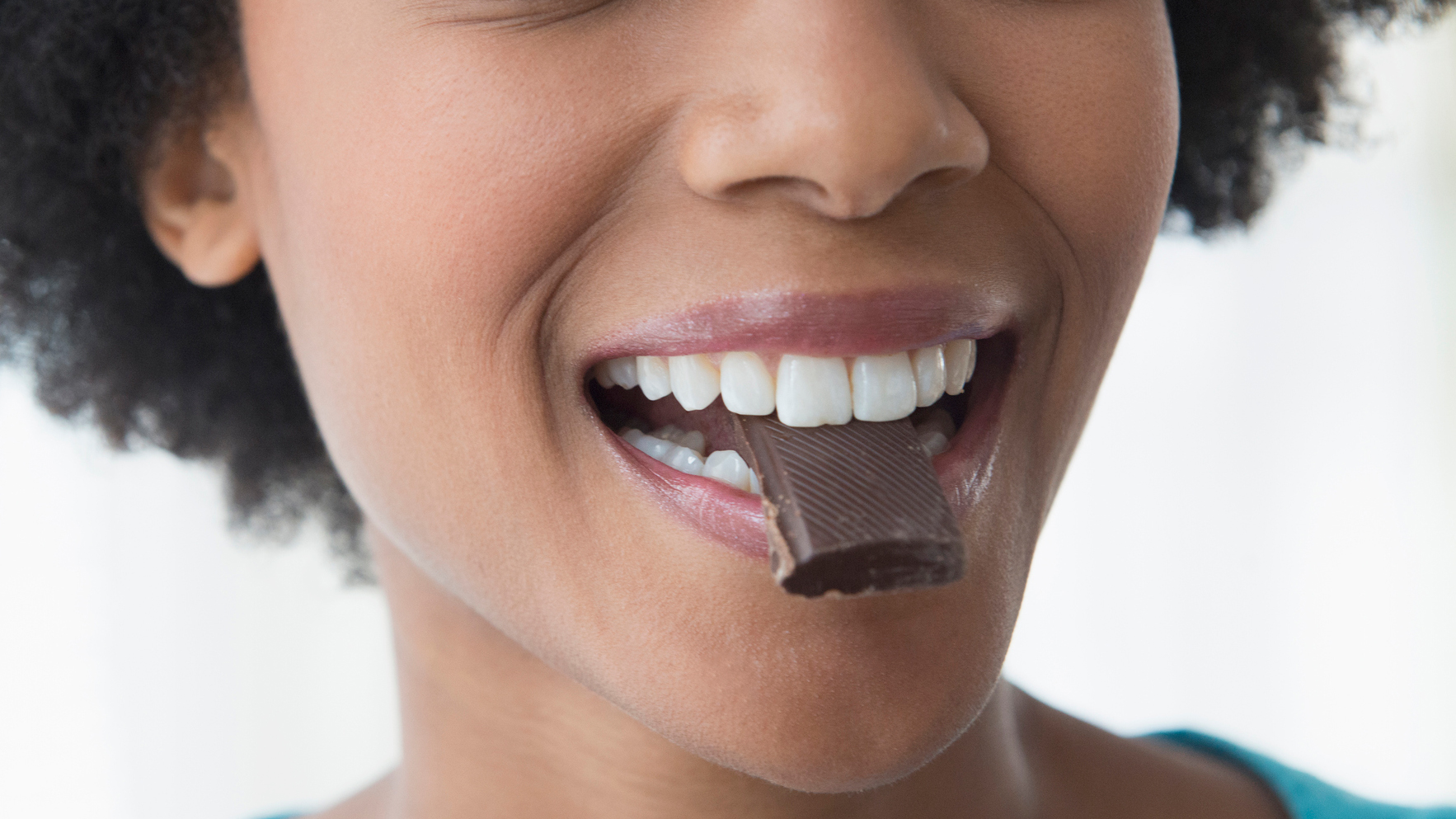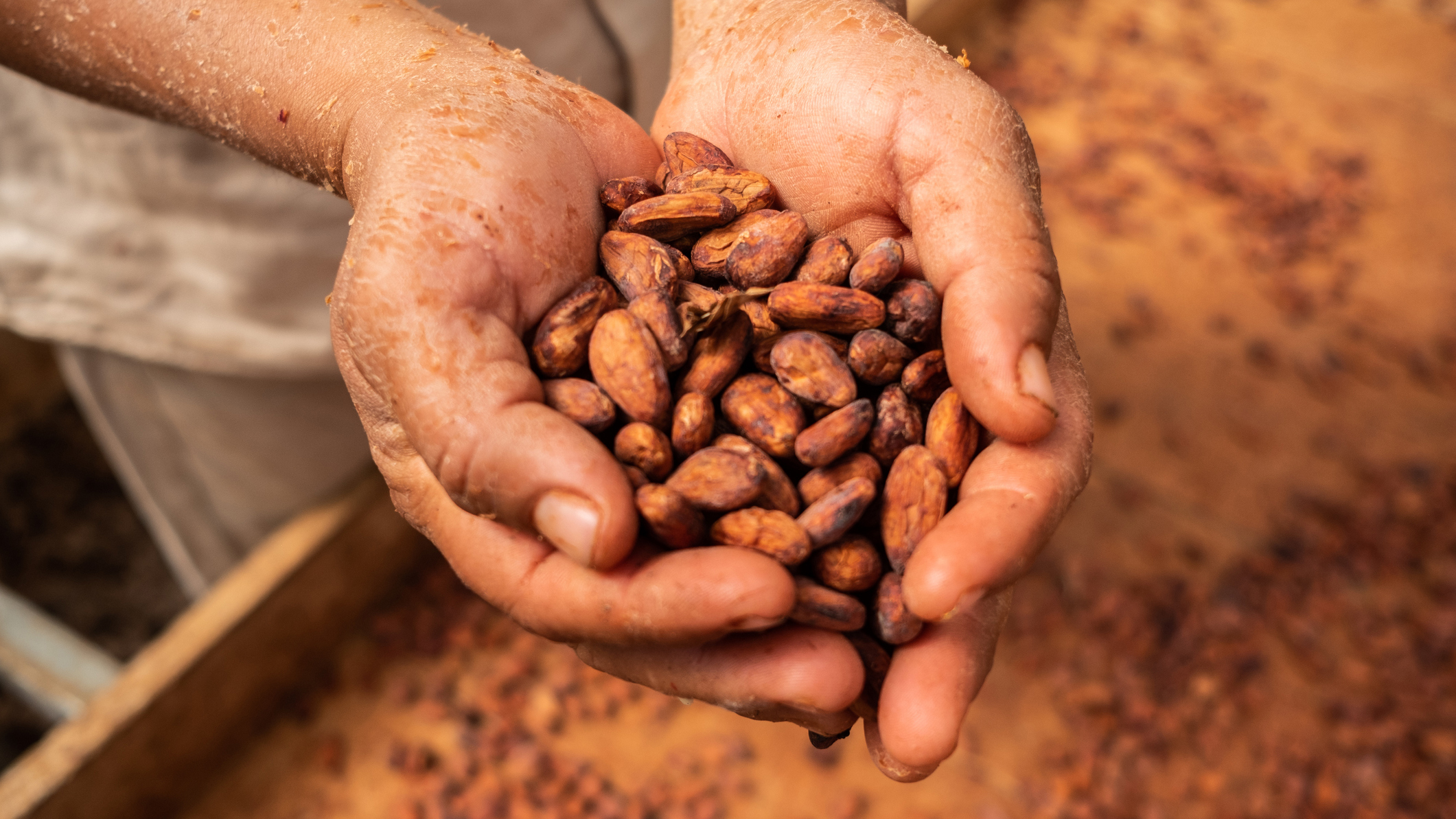Why a little bit of chocolate could have surprising health benefits for women
A small amount of chocolate consumption in post-menopausal women, especially in the morning, can improve fat-burning


Eating chocolate all the time doesn't necessarily sound like the healthiest diet. If you're looking to eat healthily, you might grab a chocolate-flavoured version of the best protein powder for weight loss, or save the chocs for an occasional treat. But surprisingly, a small amount of daily chocolate can benefit your health – especially for women.
Researchers from Brigham and Women's Hospital and the University of Murcia in Spain studied postmenopausal women eating a concentrated amount of chocolate during certain times of the day. 19 women ate 100g of chocolate, some in the morning and some at night. The results were then compared to a group of women who didn't eat chocolate at all.
The researchers found that not only did morning or evening chocolate intake not lead to weight gain over the course of the study, but chocolate in the morning could actually help to burn fat by reducing blood glucose levels.
Researcher Frank A. J. L. Scheer, PhD, MSc, said: "Our findings highlight that not only 'what' but also 'when' we eat can impact physiological mechanisms involved in the regulation of body weight."
Marta Garaulet, PhD, said: "Our volunteers did not gain weight despite increasing caloric intake. Our results show that chocolate reduced ad libitum energy intake, consistent with the observed reduction in hunger, appetite and the desire for sweets shown in previous studies."

Chocolate is well-known to be full of sugar, which can lead to increasing amounts of blood sugar and eventually weight gain and prediabetes, when eaten in excess. However, the cocoa beans from which chocolate is derived is full of flavanols which can lower blood pressure and provide insulin resistance, according to Harvard University.
The study found a link between a high cocoa intake (around 1-2 squares daily, much less than the 100g of milk chocolate used in the Murcia study above) and a reduced risk of heart disease. Milk has less cocoa solids than dark, so you should be able to eat less dark chocolate, and thus less sugar, in order to get the same health effects as milk chocolate.
Get the Fit&Well Newsletter
Start your week with achievable workout ideas, health tips and wellbeing advice in your inbox.
Of course, no one can follow a diet 100% of the time, and allowing yourself treats are important. If you're eating bars of chocolate loaded with sugar, it's obviously not going to be very good for you. But a few squares of high-cocoa content chocolate every so often, especially early in the morning, could do more good than harm.
Matt Evans is an experienced health and fitness journalist and is currently Fitness and Wellbeing Editor at TechRadar, covering all things exercise and nutrition on Fit&Well's tech-focused sister site. Matt originally discovered exercise through martial arts: he holds a black belt in Karate and remains a keen runner, gym-goer, and infrequent yogi. His top fitness tip? Stretch.
-
 This might be your last chance to get my favourite waterproof walking shoe, and it's 25% off
This might be your last chance to get my favourite waterproof walking shoe, and it's 25% offDeal These Adidas Gore-Tex shoes are the most watertight I've tested
By Lou Mudge
-
 I tried wall balls for 30 days and the results surprised me
I tried wall balls for 30 days and the results surprised meTry this fitness challenge to boost total body strength
By Maddy Biddulph